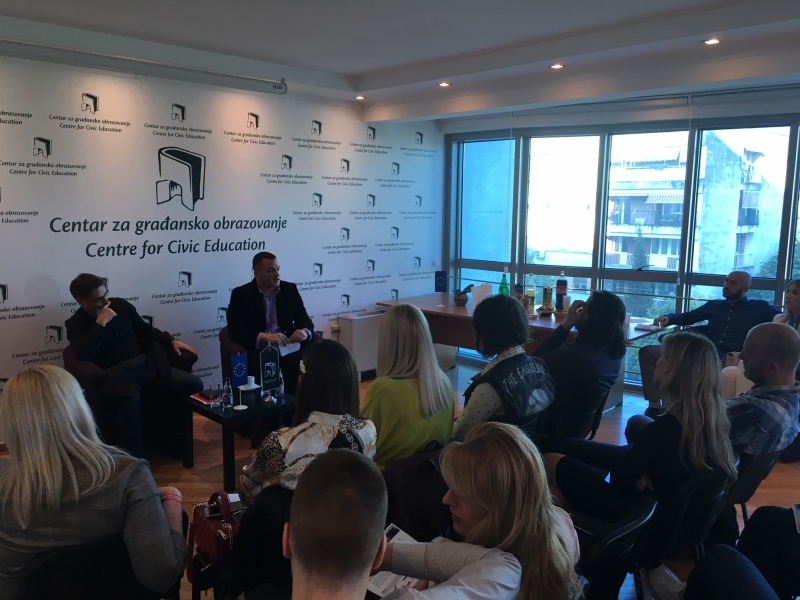The lecture on the role of the Parliament of Montenegro in the EU accession process was held yesterday in the organisation of the Centre for Civic Education and the Committee on European Integration. Deputy Chairperson of the Committee on European Integration Mr Adrijan Vuksanović and member of the Committee Mr Neđeljko Rudović debated with the School attendees.
Mr Vuksanović presented a background of the Committee - its establishment, work and the role in overseeing the Government's activities in the negotiation process, cooperation with the EU institutions and parliaments of Member States, regional cooperation and initiatives, as well as its role in popularisation and promotion of the integration process and the ideas and values of the Union. As regards current EU challenges, Mr Vuksanović opined that the Western Balkans’ integration into the EU constitutes the consolidation of the Union itself, and in that sense, Montenegro has been fostering European values for a long period of time, nourishing its multiculturalism.
Mr Rudović is convinced that Montenegrin society should have the broadest possible consent with regard to the European integration. He shared his views on the elections with the present as well as about key pre-conditions for the development of democracy and overall progress of Montenegro in the integration process, including the rule of law and strengthening of institutions. He expressed satisfaction by the length of negotiations, comparing Montenegro’s negotiation process with Croatian accession process.
Members of the Committee agreed that communication with citizens, professional associations, entrepreneurs and academia with regard to the content of negotiation chapters is very important for critical consideration of negotiation positions and overview of the overall process through realistic perspective. They pointed out that chapters 23 and 24 were crucial for the negotiation pace as well as the chapter dealing with the environment.
The attendees of the EU Negotiation School were particularly interested in control mechanisms used by the Committee on European integration regarding the Government's work in the negotiation process, internal situation in the EU, forecasts regarding the European elections and Montenegro’s future within the Union.












